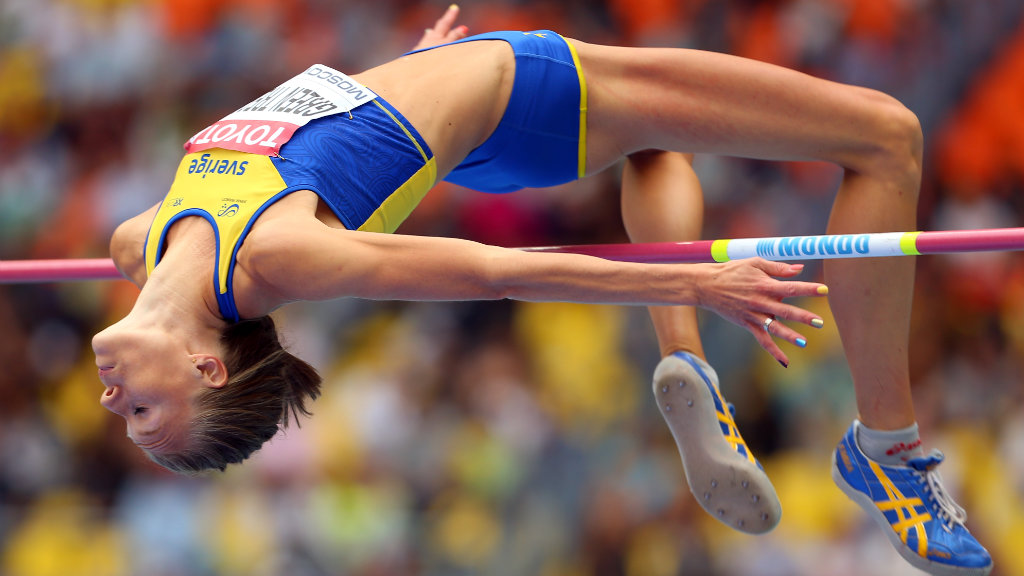Rainbow nail varnish could get Swedish athlete imprisoned
Self-expression or gay propaganda? How a Swedish athlete at the Moscow World Championships could be imprisoned for her nail varnish.

A Swedish athlete at the World Athletics Championships in Russia has committed a small act of defiance against Russia’s anti-gay laws by painting her fingernails rainbow colours. Emma Green-Tregaro, a high jumper on the Swedish national team showed reporters her nails painted red, yellow, gold, blue and purple at a qualifying round for the high jump Thursday.
“It felt right,” Ms Green-Tregaro told Reuters. “I wouldn’t say it was a protest more of a statement of what I think.”
Under Russia’s recent ban on gay propaganda, the nail varnish could lead to two weeks imprisonment and deportation – the fate of foreigners who break the law. For Russians the official punishment for “gay propaganda” is a fine.
Ms Green-Tregaro said another Swedish athlete, the 200 meters runner Moa Hjelmer, had also painted her finger nails the illegal colours.

Banned at the Olympics
Such nail polish at the Winter Olympics could result in sanctions or even disqualification under regulations from International Olympic Committee that forbid the expression of political opinions in the stadium, or ski slope.
The Olympics was not a place for “proactive protests”, said the IOC’s statement issued this week, reiterating Rule 50 from the Olympic charter that would seem to ban pin-badges bracelets and gay-sympathetic nail varnish:
“No kind of demonstration or political, religious or racial propaganda is permitted in any Olympic sites, venues or other areas.”
“No form of publicity or propaganda, commercial or otherwise, may appear on persons, on sportswear, accessories or, more generally, on any article of clothing or equipment whatsoever worn or used by the athletes or other participants in the Olympic Games, except for the identification … of the manufacturer of the article or equipment concerned.”
Speaking to Channel 4 News on Thursday an IOC spokeswoman said she could not comment on whether an ice skater or curler sporting such nail polish at the Games this February would be disciplined. “The IOC will not speculate on potential scenarios,” she said.
“The IOC will not accept any proactive gesture that could harm their spirit and jeopardize their future,” the spokeswoman said of the athletes.
Asked if holding hands or referring to a same-sex partner would be considered a protest, she responded that the IOC would treat each case individually and “take a sensible approach”.
The governing body for the World Athletics Championships, the IAAF, has a less-defined position and spoke to us last week to say that they didn’t want politics getting involved in sport. As yet there appears to have been no action against Ms Green-Tregaro or her team-mate.
Fired for coming out
In other gay Russian news, a Russian TV presenter spoke to The Independent about how he was fired immediately after he came out on live television earlier this year. Anton Krasovsky, the former Editor in Chief of Kontr TV explained why he’d done it, despite knowing it would kill his career.
“I have made a lot of money in television and I understood that I’d lose everything. But I also understood that I couldn’t do anything else. I didn’t do it so that I would get hundreds of likes on my Facebook page. I did it because I wanted them to hear it in the Kremlin. And they heard it, and were surprised.”
International condemnation of Russia’s anti-gay propaganda law rumbles on.